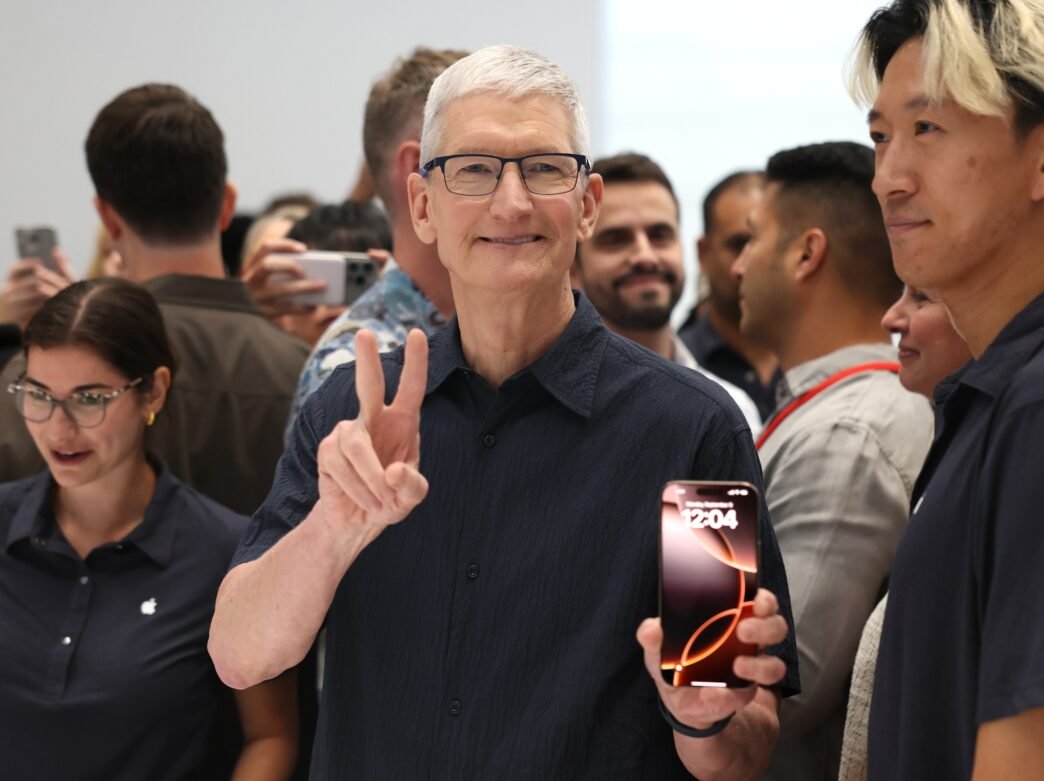Apple’s AI Strategy and DeepSeek’s Impact
Apple CEO Tim Cook recently shared his views on DeepSeek’s AI models, describing them as an example of “innovation that drives efficiency.” During Apple’s latest earnings call, Cook fielded questions from analysts regarding the company’s AI roadmap and how competitors like DeepSeek could influence Apple’s strategy and financial performance.
Apple’s Hybrid AI Approach: Local and Cloud Integration
Apple has long been known for its strategic and measured approach to technology investments. Unlike some competitors, Apple employs a hybrid AI model, blending local processing with cloud-based AI solutions.
- Local Processing: Apple’s AI models run simpler tasks directly on the device using its custom silicon chips, ensuring better privacy and efficiency.
- Cloud-Based AI: More complex AI tasks are handled through partnerships with cloud-based AI providers, such as OpenAI’s ChatGPT.
Cook emphasized that Apple takes a “prudent and deliberate” approach to AI investments, ensuring that efficiency and privacy remain core priorities.
OpenAI vs. DeepSeek: Allegations of IP Theft
While Apple maintains a partnership with OpenAI, the latter has raised concerns over DeepSeek’s AI development methods. OpenAI claims to have found evidence that DeepSeek trained its AI models using OpenAI’s proprietary models through a technique called distillation.
If these allegations are true, they could:
- Violate OpenAI’s usage policies
- Undermine DeepSeek’s AI research integrity
- Pose legal and competitive risks for AI companies relying on proprietary models
Despite these concerns, Tim Cook acknowledged DeepSeek’s advancements, suggesting that any innovation that improves efficiency is beneficial to the industry.
Apple’s Expanding AI Partnerships
Apple’s current AI integration revolves around OpenAI, allowing iPhone users to leverage ChatGPT for complex queries while maintaining secure cloud access. However, Apple has clarified that its OpenAI collaboration is non-exclusive.
Looking ahead, Apple may expand its AI integrations to include:
- Google’s Gemini
- Anthropic’s Claude
While Cook did not explicitly mention a potential partnership with DeepSeek, Apple remains open to integrating the most advanced AI solutions available in the market.
The Cost Debate: DeepSeek’s AI Efficiency Under Scrutiny
Despite being positioned as a highly efficient AI solution, DeepSeek’s computational cost and training methods have come under scrutiny. Some analysts argue that:
- DeepSeek used more GPUs and computational resources than initially claimed.
- Its AI models might not be as cost-efficient as advertised.
- Despite its efficiency concerns, DeepSeek offers its AI services at a significantly lower cost compared to American AI labs.
| AI Provider | Estimated Training Cost | AI Model Access Pricing |
|---|---|---|
| OpenAI | $1 billion+ | Premium pricing |
| DeepSeek | $300 million+ | Discounted access |
| Google AI | $500 million+ | Competitive pricing |
Apple Intelligence: Mixed Success So Far
Apple Intelligence, the company’s in-house AI initiative, was expected to drive a major boost in iPhone sales. However, the reality has been less dramatic. In the last quarter, iPhone sales declined slightly compared to the previous year, despite the AI rollout.
Regional Sales Trends
Cook attempted to put a positive spin on the sales decline by pointing out that Apple saw stronger sales in regions where Apple Intelligence was available. However, this improvement was not enough to offset an overall market slowdown.
Challenges with Apple’s AI Features
Apple Intelligence has also faced accuracy and reliability issues. One of the most concerning incidents involved Apple’s AI-powered news summary feature, which produced a misleading headline.
- In one instance, the AI incorrectly reported that Luigi Mangione—who was charged in the murder of UnitedHealthcare CEO Brian Thompson—had shot himself. This was factually incorrect.
- The mistake prompted Apple to pause its AI-generated news summaries.
These missteps highlight the risks associated with automated AI content generation, particularly in sensitive areas like news reporting.
Future Outlook: Where Apple’s AI Strategy is Headed
Apple is clearly committed to expanding its AI capabilities, but its approach remains cautious compared to competitors like Google and OpenAI. Key areas Apple may focus on in the coming years include:
1. Expanding AI Partnerships
With OpenAI already on board, Apple may soon integrate Google’s Gemini and Anthropic’s Claude into its ecosystem to enhance AI offerings.
2. Enhancing On-Device AI
Apple’s commitment to on-device processing ensures improved privacy and efficiency, giving it a competitive edge over cloud-dependent AI models.
3. Refining AI Accuracy
Following the Apple Intelligence news summary failure, Apple will need to improve the accuracy and reliability of its AI-generated content.
4. Boosting AI-Driven Sales
Apple Intelligence was expected to drive higher iPhone sales, but with only modest regional improvements, the company may need to rethink its AI-driven marketing strategy.
Apple’s AI Evolution Continues
Tim Cook’s remarks on DeepSeek reflect Apple’s pragmatic stance on AI—acknowledging competition while staying committed to its own long-term vision. While Apple has faced setbacks, including an AI-generated misinformation incident and lackluster iPhone sales growth, the company remains focused on privacy-first AI development and strategic partnerships. As Apple continues refining its AI offerings, the tech world will be watching closely to see how it competes in the rapidly evolving AI landscape.













